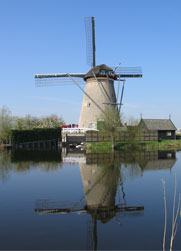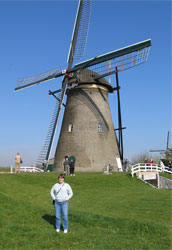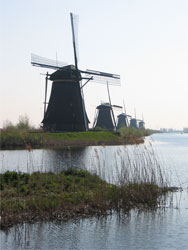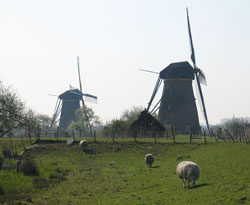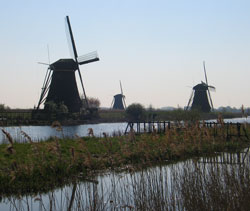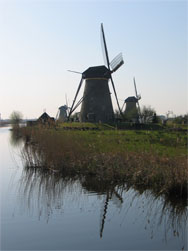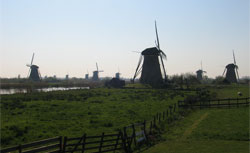A Dutch River Cruise
(Click on any of the pictures to get a larger version of that image.)
|
|
|
| Some of our moorings didn't quite have the same magic-out-the-window property as our first morning in Amsterdam. |
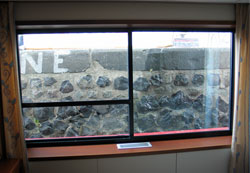 |
|
Palais Het Loo
|
|
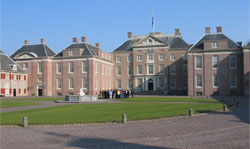 |
After waking up to such a lovely view, we spent the morning in an excursion to the Palais Het Loo, a former summer home of the Dutch royal family. (You can tell it was a summer home because the floor and ceilings were made out of wood, not any of that pretentious marble or plaster stuff.) |
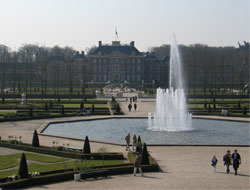 |
|
|
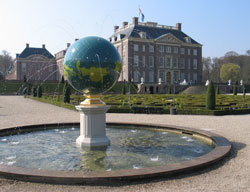 |
These two fountains — one a globe of the earth, one a celestial globe — were my favorite feature in the otherwise relatively plain gardens. (The earth globe represented California as an island, so the globes' original incarnation was obviously quite a while ago.) |
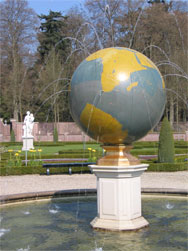 |
|
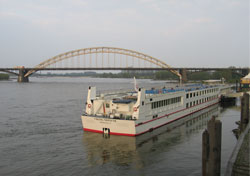 |
After touring Het Loo, we returned to the boat and I got my wish for some extended cruising time on the river — we spent the afternoon travelling from Arnhem to this scenic berth in the city of Nijmegen.
(There was an optional excursion that afternoon, but after not feeling like we got our money's worth from the trip to Zaanse Schaans, we didn't want to shell out for another similar-sounding trip.)
|
|
|
|
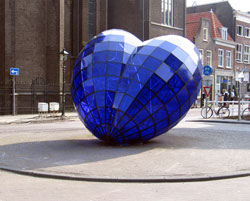 |
Delft
|
|
In the afternoon, we visited the town of Delft, home to (of course) the Royal Delft earthenware factory and final resting place for the Dutch royal family, along with other notables. |
|
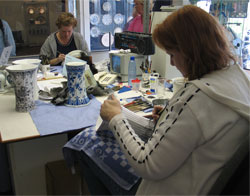 |
I went to the Royal Delft factory thinking that it would be the ultimate tourist trap, but it turned out to be genuinely interesting.
Here are two Delft painters, held together in captivity for the amusement of tourists (I can see their staff swapping this assignment down in the breakroom every morning — "all right, who's going to be down in the pit today??")
|
|
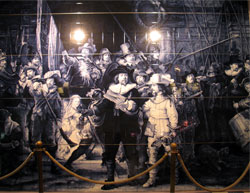 |
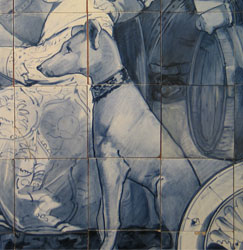 |
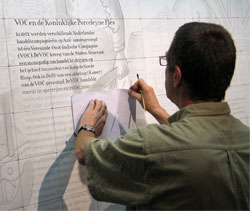 |
| Many treasures and curiosities produced over the years were on display, the most interesting being a Delftware reproduction of Rembrandt's Night Watch that was the size of the actual painting (huge!), done for a private collector and on temporary display at the factory. |
A painter at work on another wall-sized production. |
|
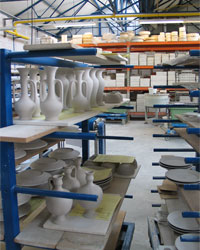 |
Just before being led into the shop (Aha! It was a tourist trap after all!), we got to see the warehouse, with racks of cast items waiting to be painted, and the kilns, with painted items waiting to be fired. |
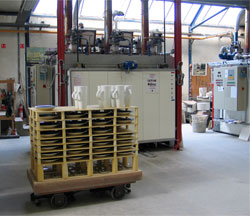 |
|
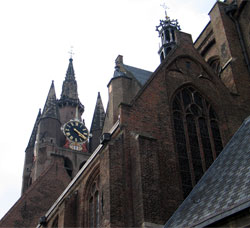 |
Delft has two notable churches, the Old Church and the New Church; the Old Church is the resting place for a number of Dutch notables. |
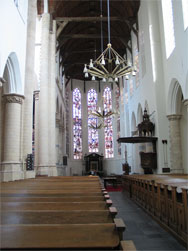 |
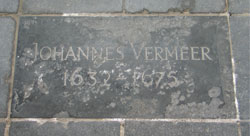 |
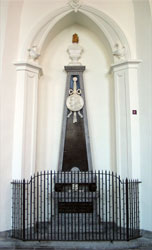 |
| A simple stone in the floor marks the place where Johannes Vermeer's grave is thought to be. |
A more elaborate grave and memorial for Anthony van Leeuwenhoek, the Delft scientist who invented the microscope. |
|
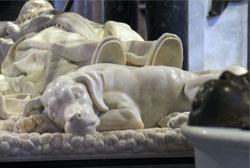 |
Across town at the New Church, we have the graves of the Dutch royal family. At the feet of William of Orange is his faithful dog, beseeching heaven with his eyes (we assumed the marble dog was purely allegorical, but according to this page, it represents his real dog, who refused to eat or drink after William's death and died pining for his master!) |
|
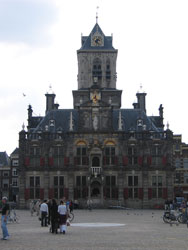 |
| Delft's city hall. |
|
|
|
|
|
|
| This page last modified on Saturday, May 01, 2004 |
| Go to: HappyBeagle.com • HappyBeagle's picture pages • Shelby's Blog • Kevin's Blog |







